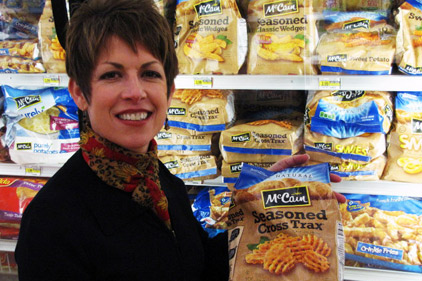|
Meet... Dr. Jennifer Garrett Global Nutrition Director McCain Foods Ltd. Education: B.S. Animal and Dairy Science, University of Kentucky; M.S. Animal Nutrition,
Experience: Garrett started her career as a dairy specialist with the University of Missouri’s state extension program. She joined Monsanto (1995-2006) and started with the company’s dairy technical services group. She went on to work in Monsanto’s public affairs and industry affairs department. Garrett next served as director of nutrition marketing at Kellogg Company (2006-2008) before she started her own ag and nutrition services consulting firm. In June 2011, Garrett joined Canada’s McCain Foods Ltd., Florenceville, N.B., as senior director of health and wellness. This year, McCain promoted her to global nutrition director. Associations: Garrett belongs to the American Society for Nutrition (ASN), Academy of Nutrition and Dietetics (formerly the American Dietetic Association, ADA), the Institute of Food Technologists (IFT) and the American Dairy Science Association. Where you’ll find her: Garrett attends the Experimental Biology and ASN annual meetings. She also attends Academy of Nutrition and Dietetics Food & Nutrition Conference and Expo, IFT’s Wellness Conference and annual convention, the School Nutrition Association’s annual meeting and the annual meeting of the Society for Nutrition Education & Behavior. |

|
|
Prepared Foods’ “Food for Thought” feature interview series involves food company R&D professionals, nutritionists, research chefs and other industry executives. Garrett: I have two varieties of McCain Purely Potatoes – Whole Baby Skin-On Potatoes and Russet Potato Slices. Because I travel so much, there’s no time for cooking. Purely Potatoes takes out all the washing and peeling, so there’s no mess. I just stick them in the microwave. |

